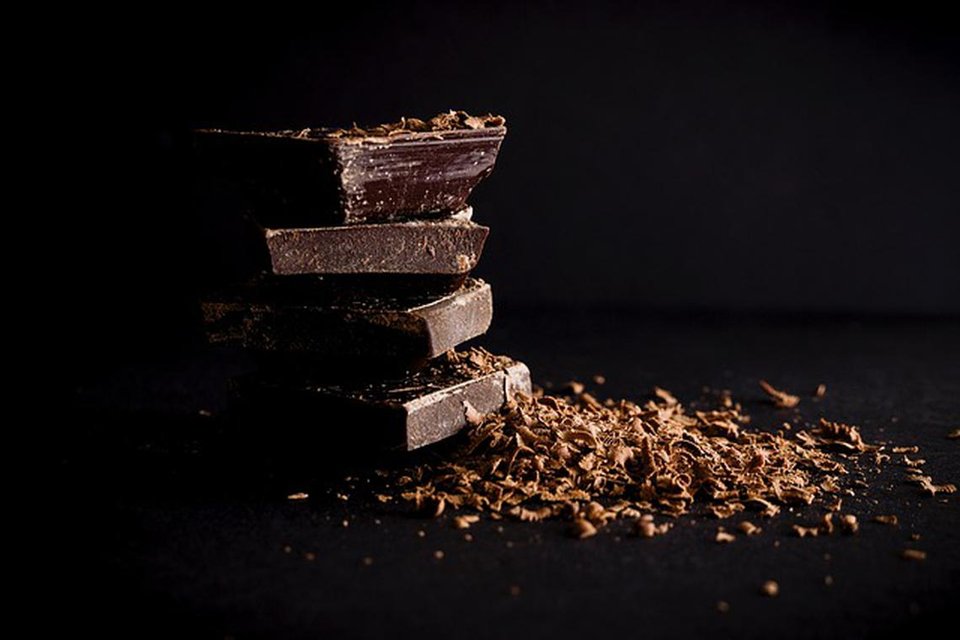Could dark chocolate reduce your risk of diabetes?

Published on
18 Dec 2024
Published by
NYTIMES
NEW YORK – If you have long assumed that you must deprive yourself of delicious foods to be healthy, a new study in medical journal The BMJ offers encouraging news: Eating dark chocolate has been associated with a reduced risk of developing Type 2 diabetes.
The research did not prove that the chocolate itself was responsible for this health benefit. It could be something else about the people who ate dark chocolate that made them less likely to develop diabetes. And dark chocolate should not be considered a “magic bullet” for preventing diabetes, said Dr Qi Sun, an associate professor of nutrition and epidemiology at the Harvard T.H. Chan School of Public Health and lead investigator on the study.
But the findings do build on a larger body of research demonstrating links between dark chocolate consumption and reduced risks of certain health conditions such as high blood pressure, cardiovascular disease and insulin resistance.
The results, Dr Sun added, suggest that a little dark chocolate can be part of a healthy diet.
The study’s findings
In the mid-1980s and early 1990s, researchers began studying three groups of predominantly white health professionals. Every four years, the more than 190,000 participants completed detailed diet questionnaires, which asked how often they consumed chocolate.
Beginning in 2006 and 2007, depending on the group, the researchers tweaked the questionnaires to ask how often participants ate dark chocolate and milk chocolate. They followed the participants’ health for up to 34 years.
During that time, nearly 19,000 participants developed Type 2 diabetes. After adjusting for other aspects of their lifestyles – such as exercise, alcohol consumption, smoking and the overall healthfulness of their diets – as well as their age and family history of diabetes, the researchers found that people who consumed at least five servings of any type of chocolate a week had a 10 per cent lower risk of developing Type 2 diabetes compared with those who rarely or never ate chocolate.
But when they drilled down into the data from the nearly 112,000 people who provided details on the types of chocolate they consumed, the researchers found an even more striking result.
Those who consumed at least five servings of dark chocolate a week had a 21 per cent lower risk of developing Type 2 diabetes than those who consumed dark chocolate less than once a month.
The participants who consumed milk chocolate, this subsequent analysis also revealed, were not protected from Type 2 diabetes. In fact, the researchers noted, they were more likely to gain weight during the study.
The study’s limitations
While the study was large and well-designed, it could not prove cause and effect, said Dr Susan Spratt, a professor in the division of endocrinology, metabolism and nutrition at the Duke University School of Medicine, who was not involved with the study.
Perhaps the people who consumed dark chocolate were healthier in other ways, she added. Maybe they exercised more, followed a healthier diet, or could more easily visit a doctor when they needed to, for example.
The study group was also mostly white and well-educated, so the results may not apply to everyone, Dr Sun and his co-authors noted.
Possible explanation for the result
Dark and milk chocolate have similar amounts of calories, sugars and saturated fats, Dr Sun said. But dark chocolate typically contains more cocoa, which may be key to its health benefits, he and his colleagues hypothesised.
Cocoa is a bean extract that is rich in fibre and beneficial plant-based compounds called flavonoids, said Dr Dariush Mozaffarian, a cardiologist and director of the Food Is Medicine Institute at Tufts University, who was not involved with the study. Some research suggests that flavonoids have antioxidant and anti-inflammatory effects and might help to open blood vessels, which may explain cocoa’s health benefits, he said.
Some small, short-term clinical trials have suggested that consuming dark chocolate or cocoa can reduce blood pressure and improve insulin sensitivity and insulin resistance – both of which influence the risk of developing Type 2 diabetes, Dr Mozaffarian said.
But not all of those studies have found benefits, and some used concentrated cocoa supplements, which contain more flavonoids than a typical bar of dark chocolate.
The takeaway
Dr Mozaffarian embraces dark chocolate as part of a healthy diet, though he says it is best to choose a variety with at least 70 per cent cocoa. An even better option is nuts coated with dark chocolate, he said, since nuts also contain phytonutrients, healthy fats and fibre.
In several recent studies, researchers have found concerning levels of lead and cadmium in dark chocolate. More research is needed to understand this potential health risk, Dr Sun said.
However, those studies have suggested that consuming up to about 28g of dark chocolate a day – about a third of a regular-sized Ghirardelli dark chocolate bar – is safe for most adults, though those who are pregnant may want to be more cautious.
If it turns out that dark chocolate does protect against Type 2 diabetes, it would not be at the top of Dr Spratt’s list of ways to prevent the condition.
To her patients, she emphasises a diet rich in vegetables and whole grains; avoiding processed and red meats; maintaining a healthy weight; and getting at least 150 minutes of moderate-intensity physical activity a week. NYTIMES
Source: The Straits Times © SPH Media Limited. Reproduced with permission.
Photo: The Straits Times
Written By: NYTIMES
ALL views, content, information and/or materials expressed / presented by any third party apart from Council For Third Age, belong strictly to such third party. Any such third party views, content, information and/or materials provided herein are for convenience and/or general information purposes only. Council For Third Age shall not be responsible nor liable for any injury, loss or damage whatsoever arising directly or indirectly howsoever in connection with or as a result of any person accessing or acting on any such views, content, information and/or materials. Such third party views, content, information and/or materials do not imply and shall not be construed as a representation, warranty, endorsement and/or verification by Council For Third Age in respect of such views, content, information and/or materials.







